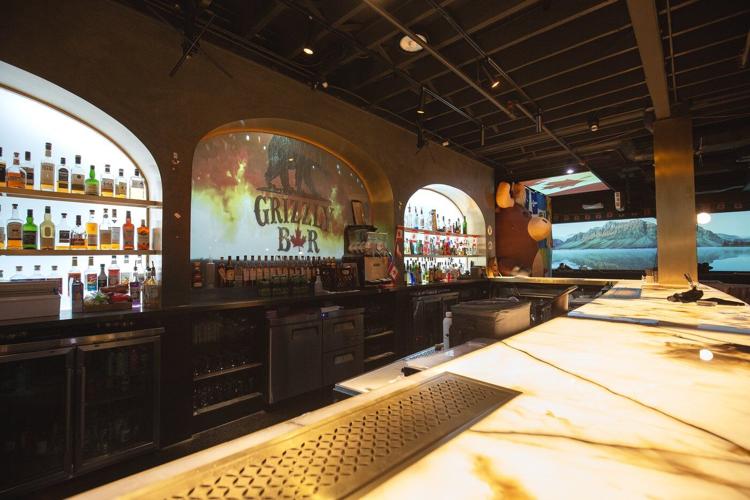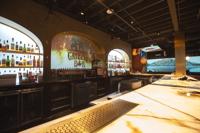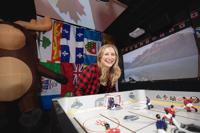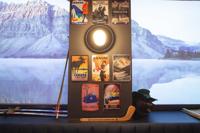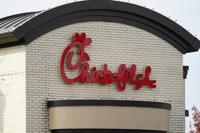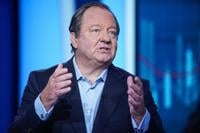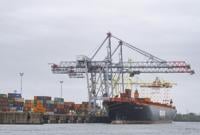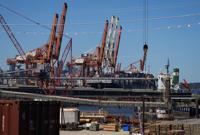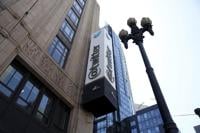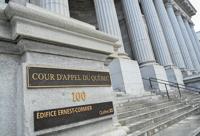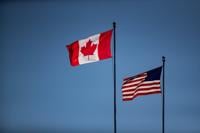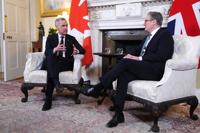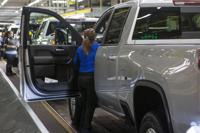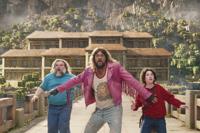TORONTO - When Grizzly Bar opens next week in Toronto, diners will have no doubt about where its ownersŌĆÖ allegiances lie in the trade war between Canada and the U.S.
Maple leaves and animatronic bears will set the mood. Customers will be able to order Montreal smoked meat, calamari from the Maritimes or Caesars topped with ketchup chips in mini paper boats. They can all be paid for by cash, card or the country's other favourite currency, ║┌┴Ž│į╣Ž═° Tire money.
For entertainment, Blue Rodeo, Rush and Loverboy will be on heavy rotation and a "Hoser Olympics" will see customers face off in a series of challenges like the ŌĆ£loonie toss,ŌĆØ ŌĆ£hockey tape escapeŌĆØ and ŌĆ£sorry-not-sorryŌĆØ ║┌┴Ž│į╣Ž═° apology competition.
"It's going to be wild how much stuff there is," said co-owner Jessica Langer Kapalka, who also plans to dress the bar manager in a nine-foot, inflatable grizzly bear costume and set up tents offering a campfire-like experience with s'mores.
Grizzly Bar's in-your-face approach is one of the ways ║┌┴Ž│į╣Ž═° restaurants are responding to the tariff tensions that have engulfed North America and threatened to upend food supply chains and dining out budgets.
As U.S. President Donald Trump continues to antagonize his countryŌĆÖs closest ally with duties on everything from cars to kitchen cupboard staples, ║┌┴Ž│į╣Ž═° restaurants have swapped U.S. ingredients for domestic ones.
Some have revamped menus, ditching the Philly cheesesteak and replacing Americanos with ║┌┴Ž│į╣Ž═°os, while others are holding back on U.S. expansion plans.
The varying approaches reflect the fact that every establishment has had to find its own way to balance its ║┌┴Ž│į╣Ž═° pride with the preferences of its customer base and the realities of pricing pressures, said Jo-Ann McArthur, president at Toronto advertising agency Nourish Food Marketing.
"You don't have to go all the way to changing your decor and changing your entire menu," she said. "It's about supporting your local producers where you can."
Yet some, like James McInnes, are keen to take the issue even further.
His vegan fast-food chain Odd Burger Corp. paused its plan to open 60 franchises in the U.S. just two weeks after announcing the expansion in March.
McInnes made the decision because he feared "escalating political tensions" had made the economics of the plan too much for his London, Ont.-based business to stomach.
"Not only are the tariff percentages changing on a daily basis, but also what is getting tariffed is changing on a regular basis," McInnes explained.
"How do you formulate pricing for franchisees when you don't know what many of the costs will be?"
Rather than get caught up in the confusion, Odd Burger decided to stay focused on its ║┌┴Ž│į╣Ž═° operations and think more closely about what it can do to insulate its supply chain from the U.S.
"If there's a 200 per cent tariff put on Coke, we don't know what that will look like," he said. "We're exposing ourselves to a lot of risk and at a certain point, it just doesn't make financial sense to carry U.S. products."
At Kanoo Coffee, it was patriotism rather than prices that got co-owner Steve Neville to make its menu unabashedly ║┌┴Ž│į╣Ž═°.
When the Guelph, Ont., caf├® opened last year, the plan was to bring customers a taste of the worldŌĆÖs best coffees, so it cycled through international brews until the tariff spat convinced Neville to make ║┌┴Ž│į╣Ž═° coffee the star.
ŌĆ£We realized it's been a no-brainer all along,ŌĆØ he said.
Kanoo's offerings now come from Subtext Coffee Roasters in Toronto, September Coffee Co. in Ottawa, Phil & Sebastian in Calgary and Traffic Coffee Co. in Montreal.
ŌĆ£Being in this globalized world, we've kind of lost sight of some of those domestic priorities (like) supporting local businesses, local families ... and that's starting to break down,ŌĆØ Neville said. ŌĆ£So that's kind of like the silver lining to all this."
Grizzly Bar is similarly proud it will be able to put the spotlight on Canada.
The company found the fixings for menu highlights like poutine, chicken wings and bison burgers at home.
"I was expecting it to be a lot more difficult in some ways to source the majority of our food items from Canada, but it hasn't been that difficult at all," Langer Kapalka said,
In the few cases when something can't be sourced from Canada, the business turns to allies. That's why New Zealand elk and Mexican fruit and vegetables make the menu and the animatronic bears come from the Philippines.
Asked how much she and Jason Kapalka, her business and life partner, spent on the endeavour, she said, "wish I knew!" The couple's budget is up to $15,000 but they reduced expenses by getting friends to scour "wood-panelled basements" for eccentric decor they could borrow.
All of the preparations happened in the last few weeks after the couple settled on transforming Offworld Bar, a dining establishment they run that rotates through different themes, into a ║┌┴Ž│į╣Ž═° paradise.
The beach style pop-up Grizzly Bar will supplant lasted about two months. The ║┌┴Ž│į╣Ž═° theme will likely stick around longer.
Kapalka jokes about running it until 2028, when the U.S. will elect its next president, but hopes the political tide will render it unnecessary even sooner.
"Hopefully, there'll be a different regime at some stage there," he said. "I would look forward to switching it off, if there's no longer a need for it."
This report by ║┌┴Ž│į╣Ž═° was first published April 6, 2025.

